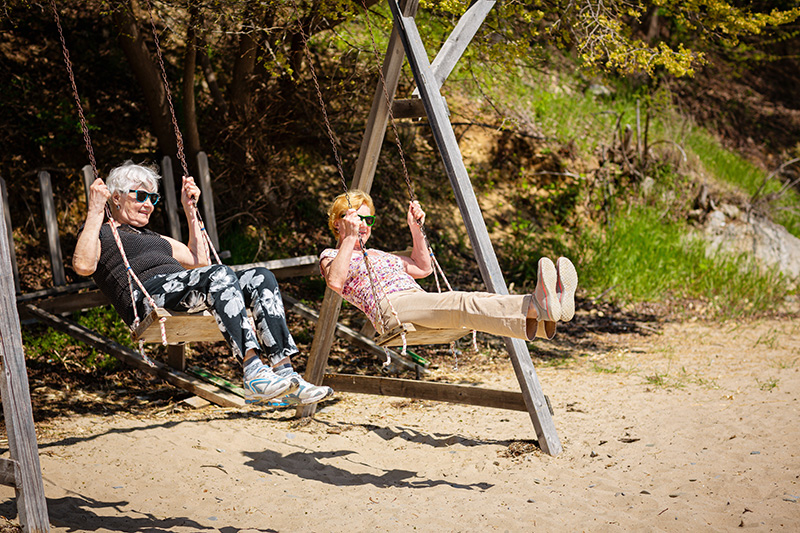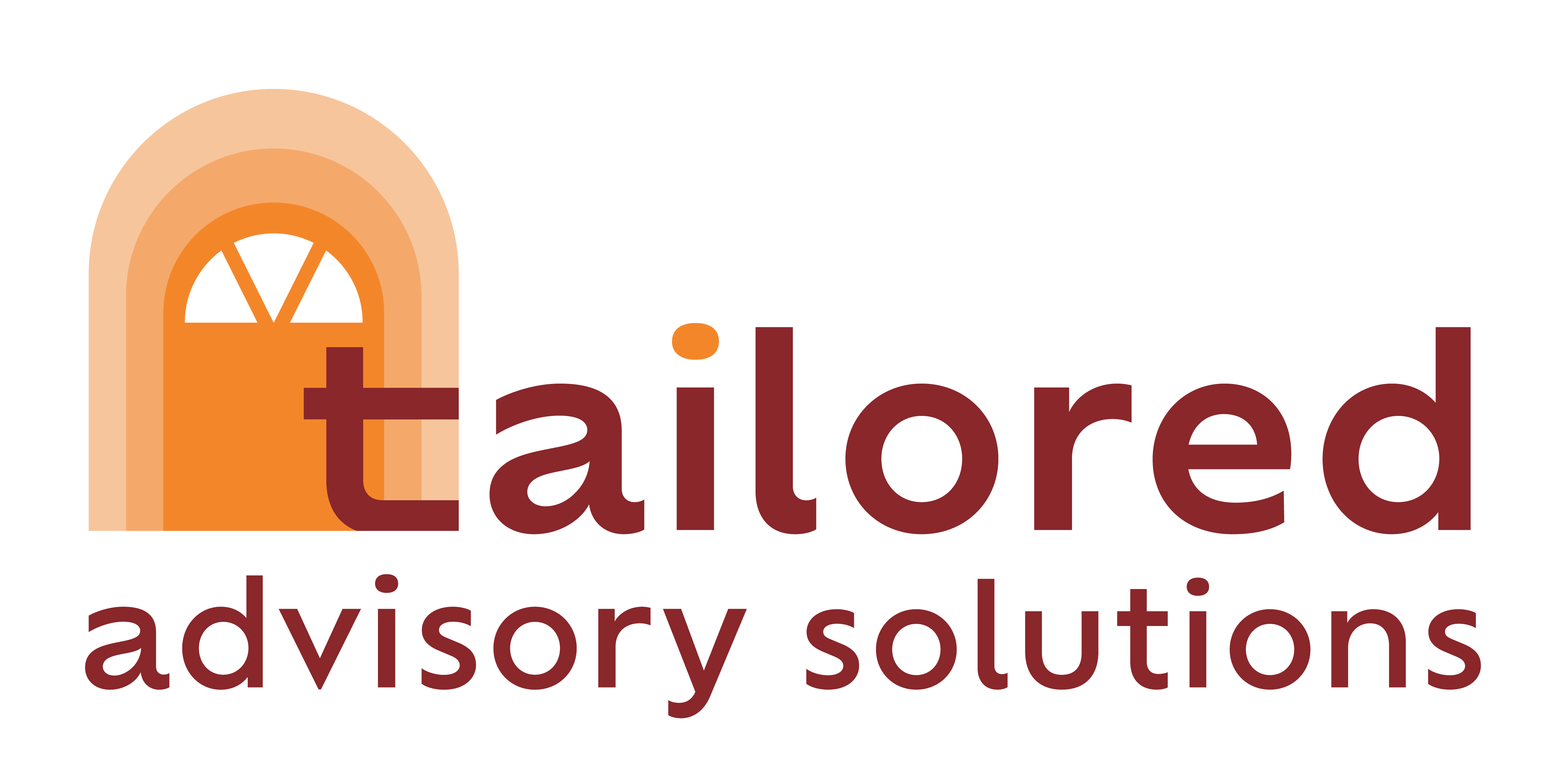Assisted Living Communities
When you or a loved one need more personal attention to care, choosing a new place to call home can be a challenge in the best of circumstances Let Us Help You Navigate Your Options.



When you or a loved one need more personal attention to care, choosing a new place to call home can be a challenge in the best of circumstances. When looking for a place that can accommodate specific healthy activity and daily living needs, the challenge can become even more daunting. Tailored Advisory Solutions can help you identify the right place where one is encouraged to maintain the highest level of independence and help with needs along the path while providing a joyful living community.
An assisted Living Community care service fee should provide, activities of daily living such as the following. These can typically be added as a person’s care and service plan needs increase.
- Bathing
- Dressing assistance
- Housekeeping Options
- Personal hygiene and grooming
- Dining Options with three meals daily
- Snacks and refreshments available
- Maneuvering in and out of bed and/or walking
- Health and Wellness Programs
- Incontinence Management
- Community outings and special events
- Social and Life Enriching Activities
- Medication Assistance
- 24 Hour awake care team support
- Community Security
Questions that should be on the top of your mind when looking for an optimal Assisted Living Community:
- How were you greeted and welcomed to the community when you arrived?
- Does the reception team look happy to help?
- As you tour are staff members introducing themselves to you?
- Do the Team Members you meet seem happy and friendly?
- When you meet Resident’s do they appear well cared for and attended to?
- Is the Community clean, organized, and free of clutter?
- Are there options with common areas that help make the community feel like one’s home is more than just behind the apartment door?
- Are the grounds well-kept, free of garbage and cigarette butts, and are there areas for residents to walk and stroll?
- If you have a four- legged friend, is the community pet friendly?
- Does this community provide the services and amenities you are looking for?
- What is the ratio of care staff to residents? (Not to be confused with staff to resident ratio, as that would include all staff).
- Does the community offer a care continuum and if so for what other care related services? i.e., Memory Support.
- What amenities and activities does the community provide that may not be included with the assisted living rent and care fee?
- What are the dining options in the community, when are they available and can the community provide specific dietary options comprehensively?
- What are the care fees at the community and how are they calculated? Typically, the community nurse is the only one who can calculate care upon a completion of an assessment, but you should be able to easily understand the typical fees you might expect for yourself or your loved one
Memory Supportive Care and Community



A Memory supportive location requires much higher level of training and compassionate team members, who have enhanced skills and oversight in caring for the Resident’s. Individuals living with memory loss at some point will require more personal attention as well a secured and supportive environment. Finding the right place for your loved one is essential in helping ensure a life of purpose and fulfillment as well as spaces where joy is celebrated.
Both Assisted living and memory supportive care offer many of the same services, including housing, dining, and help with activities of daily living, like bathing, grooming, and using the bathroom. However, memory supportive care also specializes in caring for seniors with memory loss, Alzheimer’s disease, and other forms of dementia. Team Members in a Memory Supportive location should be well-equipped to help you and your loved one navigate the needs in dementia, maintain cognitive skills, a sense of oneself, and quality of life for as long as possible. Tailored Advisory Solutions will help you find the right place that contains a separate neighborhood for memory care residents.
Questions you should ask when looking for a Memory Supportive care community:
- Is it a secure neighborhood that specializes in memory supportive care?
- What specific and hallmark services does the community provide?
- Does the staff receive specialized training, and with what programs?
- What is the communities core approach to memory support?
- What level of personal attention and assistance can you expect for your loved one?
- Does the community have a specialized progressive dining program that uses various techniques and meal options to address the specific challenges people living with dementia may have while dining?
- What programs are offered to stimulate the mind, provide physical exercise as well as mind exercise programs? i.e., an Obi or an IN2L
- How does the community handle medical emergencies?
- Is the nurse onsite 24 hours a day and if not how many hours of licensed oversight are in the community daily? (If the community does not have 24-hour licensed nursing they will have licensed nurse delegated services provided by trained staff members.)
- What is the ratio of care staff to residents specifically in the memory supportive section of the community?
- How does the community communicate with family members about a resident’s well-being and needs?
- How does the community train and provide de-escalation for behavioral situations that can arise?
- Can a loved one remain in the memory supportive space during Hospice and end of life?
Skilled Nursing & Rehabilitation Centers



No one likes to think about skilled nursing, but there may come a time when many of us may need more care than we can get from family members, or even in an assisted living community, memory supportive community or Adult Family Home. Skilled nursing and Rehabilitation Centers are licensed healthcare facilities that are inspected and regulated by a state’s Department of Health Services and are often credentialed by national organizations for specific advancement of service levels. They offer long and short-term care for seniors who need therapy rehabilitation services or who suffer from serious or persistent medical issues.
Skilled Nursing and Rehab Centers are staffed 24 hours by Registered Nurses, Licensed Practical Nurses, and Certified Nursing Assistants. Almost all also have a full complement of therapies including Physical, Occupational, Speech and Recreational. In addition, all centers provide A Social Services support structure and team. Many skilled nursing and rehabilitation centers will supplement services with activity coordinators as well as therapy assistants and rehabilitation aides in order to maintain an active and engaging, yet peaceful and practical environment of quality care.
Skilled nursing and Rehabilitation Centers also provide:
- pharmaceutical, laboratory and radiology services with contract providers
- social and educational activities
- Spiritual services
- laundry services including linens
- limited transportation
- end-of-life or hospice care
- Medication management
- IV Therapy Services
- Wound care and wound management
- Inter Team comprehensive Case Management
Not all nursing homes offer all these services. Families can contract with Tailored Advisory Solutions to help them select the right place for all of your loved ones needs in a skilled nursing environment. Our Team will do the work for you as well as take you to selected skilled nursing centers to find the one best option.
Active Adult and Independent Living



What are Active Adult & independent living Communities?
Active Aging and Independent living are simply any housing arrangement designed exclusively for Modern Agers, generally those aged 55 and over. Housing varies widely, from apartment-style living to single-family detached homes. With many Independent communities, the housing is friendlier to aging adults, often being intelligently designed, a bit more compact and easier to navigate while provide a space where maintenance and yard work are taken care of.
While residents live independently, most communities offer a wide variety of amenities, activities, and services. Often, recreational centers or clubhouses are available on site to give you the opportunity to connect with neighbors and participate in community activities, such as arts and crafts, holiday gatherings, cocktail hours, continuing education classes, theatre nights, trave l programs and even Modern Aging Speed Dating events.
Active Adult and Independent living communities may also offer facilities such as a swimming pool, fitness centers, tennis courts, even a golf course or other clubs and interest groups. Other services offered may include onsite spas, beauty and barber salons, multiple dining options, and basic housekeeping and laundry services. Housekeeping and laundry may have an additional fee depending on frequency desired.
Since active aging and independent living Communities are aimed at older adults who need little if any assistance with activities of daily living, most do not offer medical care or nursing staff. You can, however, hire at your own expense in-home help separately as required. If you or a loved one is no longer safe within the community, you may be asked to move to an Assisted Living. Or Memory Supportive community.
As with any change in living situation, it’s important to plan ahead and give yourself time and space to cope with change. By working with the Tailored Advisory Solutions Team, you can find an Active Adult and independent living arrangement that makes your life easier, promotes your independence, and enables you to keep the adventure going in your retirement.
Types of independent living facilities and retirement homes



There are many types of independent living facilities, from apartment complexes to stand-alone houses, which range in cost and the services provided.
Low-income or subsidized senior housing. In the U.S., for example, there are senior housing complexes subsidized by the U.S. Department of Housing and Urban Development (HUD) for low-income seniors.
Senior apartments or congregate care housing. These are apartment complexes restricted by age, usually 55 or 62 and older. Rent may include community services such as recreational programs, transportation services, and meals served in a communal dining room.
Active Adult Retirement homes/retirement communities. Retirement communities are groups of housing units restricted for those over a certain age, often 55 or 62. These housing spaces can be single-family homes, duplexes, mobile homes, townhouses, or condominiums. With some communities you may also have the option to buy a space, but this may still include additional fees to cover ground maintenance, common areas and club houses. Think of it more as a HOA in this scenario.
Is an Active Adult or independent living right for you?
As we get older, any housing lifestyle change, or adaption can seem like you’re losing some independence. However, as the name suggests, Active Adult and independent living is more about making your life easier than giving up your independence. Sometimes, acknowledging your limitations—that you’re unable to manage the upkeep of your existing home, for example—and accepting some assistance now may help you maintain your regular independent routine for longer, or simply free you up to travel, date and celebrate life.
Adult Family Homes
When the time comes to think about Modern Aging Senior care living options for yourself or a family member, you may also want to consider an Adult Family Home. Your Tailored Advisory Solutions Senior Advisor will be happy to help you explore advantages of an Adult Family Home.
An Adult Family Home is a residential home designed to provide personal care services to individuals requiring a more hands on level of personal assistance. An adult family home is traditionally a home located in a residential neighborhood that has been retrofitted with some intelligent design to provide for the specific care needs and safety of seniors. Though all Adult Family Homes in Washington State are licensed and regulated, homes in other states may not carry the same requirements. Also, depending upon location and state licensing standards, an adult family home can house between two and up to 6 non-related residents.
The level of care each home provides will vary. Some are owned and operated by nurses. Others hire nurses or licensed care team members who can provide specialized care in locations that are memory supportive. Though some only provide only basic care services all are still required to have a current client assessment and plan of care which reflects their needs and their preferences of how they prefer those needs to be met. This is not the same as a Skilled or Assisted Care Plan and will need to be contracted to acquire. The fee for the Assessment is between $375-$500 depending on if conducted virtually or in person. Your Tailored Advisory Solutions Senior Advisor will help to ensure coordination of this process for approval into a desired Adult Family Home.
The age of the typical Adult Family Home resident falls somewhere between 40 and 80 years of age. Since most Assisted Living Communities are age restricted to 55 or 62 sometimes an Adult Family Home is the only option for care.
Advantages of Living in an Adult Family Home:
- Usually, Family Owned and operated.
- Family Style Dining for a home like experience.
- Adult family homes are better furnished and have professionals that work with seniors and elderly people. Such homes provide all residents the warmest, empathetic and qualified care in a safe, respectful, homely environment.
- Living in a smaller home setting can be more calming for people prone to agitation or fearful of larger communities.
- There are never more than 6 people living in an adult family home; every person receives a higher level of attention and care.
- A small intimate setting with a family-oriented environment, even more so if the owners live in the home themselves.
- Home-cooked meals served in a family-oriented setting.
- Being in a multi- generational residential neighborhood, residents have the opportunity to interact with a wider range of age groups than in a traditional senior living community.
- Costs though often equal to an Assisted Living or Memory Supportive Community should have consideration as many Adult Family Homes will allow a Medicaid spend-down but be prepared as most are up to 3-years private pay initially.
- They are often able to cater to the needs of their clients more easily.
- As a rule, an Adult Family Home will take a Resident with Higher levels of care than an Assisted Living Community.
Some questions you will want to consider:
- Are they licensed and do they accept Medicaid for a spend down?
- How long have they been operating?
- How many staff are generally on shift, both during the day and during the night? Are staff members awake during the night?
- How are family visits handled?
- Are pets allowed? Most do not allow pets but will allow for pet visitation.
- Are planned and structured activities offered during the day? What kinds of activities?
- How is medication assistance handled?
- Do steps have to be navigated to get into the home, or to access parts of the home?
- How are meals needs provided for? Can favorite foods/recipes be requested? Can specific diets be met?
- Are rooms shared or Private?
- Are transportation services provided?
- Is there a community fee?
- Is the community a flat rate or a room fee plus level of care?
- How often does the rent increase?
These are just a sampling of things you may want to ask your Tailored Advisory Solutions Senior Advisor. Be sure to have your list of questions written down so you don’t forget what you want to ask, and to ensure that you ask the same questions at all adult family homes you are considering.



